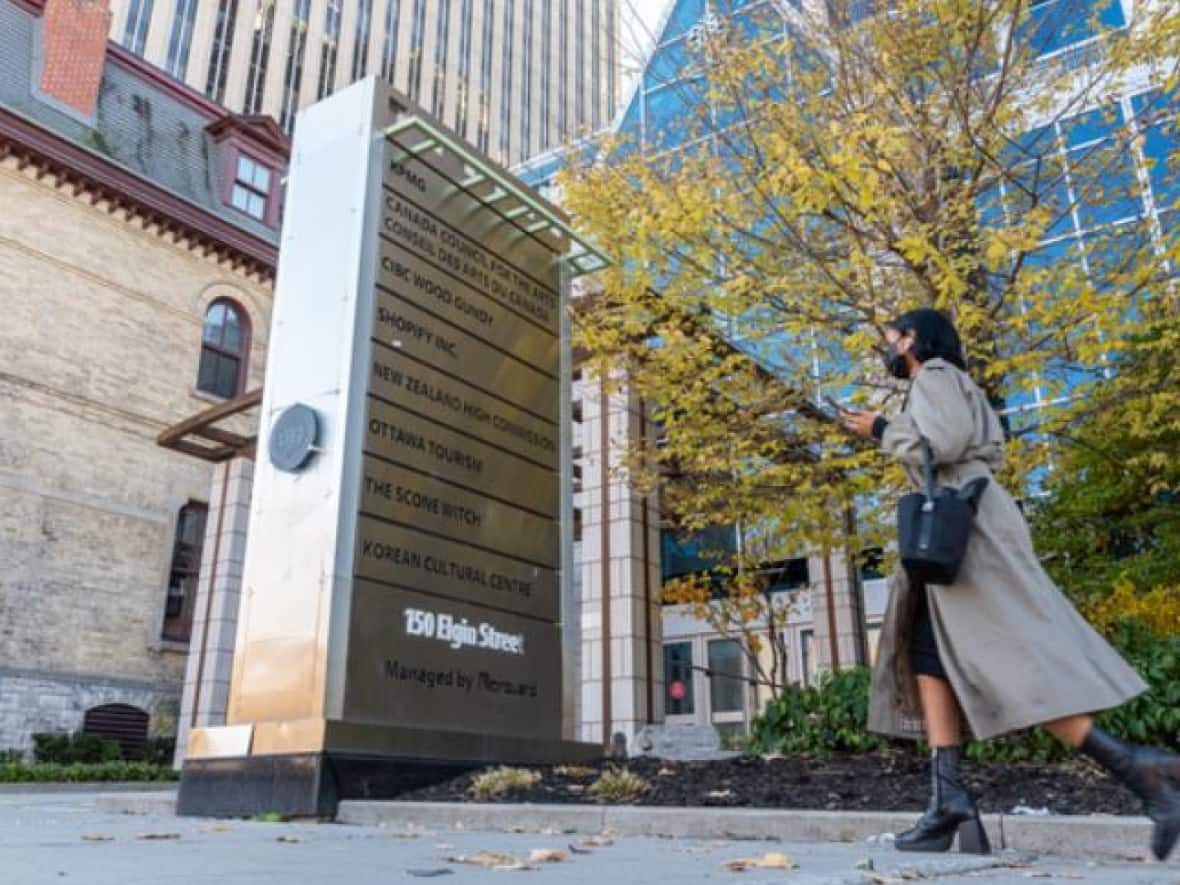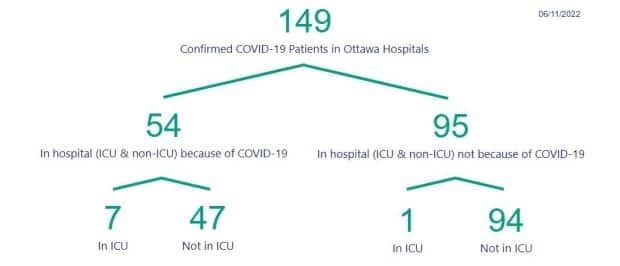For the 1st time in weeks, COVID trends aren't rising in Ottawa

Recent developments:
Ottawa's COVID-19 trends are stable or dropping.
CHEO's chief of staff wants more people to wear masks to protect kids.
More of Ottawa's youngest residents are vaccinated compared to national average.
Eleven local COVID deaths were reported since Friday.
The latest guidance
Ottawa's medical officer of health is urging people to protect themselves and others ahead of what's likely going to be a challenging winter for the city's well-being.
Vaccines are the best protection against the flu and COVID-19, said Dr. Vera Etches last week, while asking people to stay home when sick and wear masks in indoor and crowded areas. She again recommends keeping hands and surfaces clean during what she's calling an "extraordinary respiratory [illness] season."
The chief of staff at CHEO spoke to Ottawa's board of health Monday about the influx of patients at her pediatric hospital, and asked the public to resume masking to protect children. It's having to send kids to other hospitals for care, said Dr. Lindy Samson.
Ottawa Public Health (OPH) said in its weekly Thursday check-in that COVID-19 levels remain high. For the first time since late summer, though, the key numbers below aren't rising.
Wastewater
The weekly average level of coronavirus in Ottawa's wastewater is high. It's been stable for about 10 days.
As of Nov. 6, the average is about 10 times higher than this time last year.

Tests, outbreaks and cases
Testing strategies changed under the Omicron variant, meaning many COVID-19 cases aren't reflected in current counts. Public health officials now only track and report outbreaks in health-care settings.
Ottawa's test positivity rate has been seen as very high for weeks, according to OPH. It's currently around 15 per cent after being at or above 20 per cent for about two weeks.
There are currently 50 active COVID outbreaks in Ottawa. This is moderate, according to OPH, and very slowly dropping this month.
OPH reported 178 more cases over four days and seven deaths of people with COVID, all age 70 and above. A total of 940 Ottawa residents who had COVID have died, 330 of them this year.
Hospitals
OPH's count of active, local COVID-19 hospital patients rose to 29 in Tuesday's update after a significant drop at the start of November.
There are three patients in intensive care, which remains stable.
When you look at its other count that includes other patients, such as people admitted for other reasons who then test positive for COVID-19, those admitted for lingering COVID-19 complications, and those transferred from other health units, the number is stable.

Vaccines
Ottawa residents received about 11,000 COVID-19 vaccine doses in the last week, mostly fourth doses. This is down slightly from the previous week, but similar to the weeks before that.
Residents have now received more than 2.7 million doses total.
As of the most recent weekly update, 93 per cent of Ottawa residents aged five and up had at least one COVID-19 vaccine dose, 90 per cent had at least two and 61 per cent at least three.
Thirty per cent of Ottawans aged 12 and older had at least four.
About 8,500 residents younger than five have had a first dose, which is about 18 per cent of Ottawa's population of that age group. About 2,700, or six per cent, have had two. This is better than the national average.
Across the region
Spread
Wastewater trends are slowly rising in the Kingston area, and low and stable in Casselman and Hawkesbury. They're high and stable in Brockville and Smiths Falls, and dropping in Kemptville.
Data from other areas is out of date or unavailable.
COVID-19 test positivity in the Eastern Ontario Health Unit and Kingston area is a high, stable 14 per cent.
Hospitalizations and deaths
Western Quebec's health authority, CISSSO, reports a slight drop to 92 COVID hospitalizations. None of the patients are in intensive care.
Eastern Ontario communities outside Ottawa are reporting about 65 COVID hospitalizations, 11 of them in intensive care. About half are in the Kingston area, which is near its COVID hospitalization record of 35 patients.
That regional count doesn't include Hastings Prince Edward (HPE) Public Health, which has a different counting method. It reported a stable 23 COVID hospitalizations in its weekly update.
HPE reported two more COVID deaths in its weekly update for a total of 94. Leeds, Grenville and Lanark counties reported one more, bringing its overall COVID death toll to 135.
Everywhere but Ottawa has had more reported COVID deaths in 2022 than either 2020 or 2021. Nationally, the people dying of COVID in the later months of 2022 have generally been older, living with pre-existing conditions, or undergoing immune-suppressing treatments.
Vaccines
Across eastern Ontario, between 81 and 92 per cent of residents age five and up have received at least two vaccine doses, and between 53 and 65 per cent of those residents have had at least three.
The Kingston area also has more children under five vaccinated compared to the national average, with 14 per cent having at least one dose and five per cent having two.
The Belleville area is around that average of seven per cent having a single dose and one per cent having two.
Vaccine data for children under five isn't available for all local health authorities.


